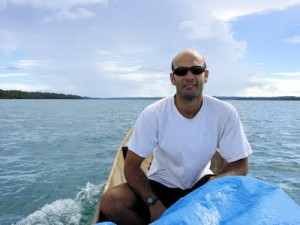Monthly Archives: November 2015
Climate change, plant ecology and conservation: a case study of the SF Bay Area [Thurs, Nov 5]
Climate change is expected to profoundly impact terrestrial vegetation, and the mechanisms, rate and extent of change will influence biodiversity conservation and the ecological functions of natural ecosystems. The San Francisco Bay Area has steep climate gradients and rugged topography, supporting a wide range of natural habitats. Using a novel application of multinomial logistic regression, we have modeled the projected impacts of climate change on Bay Area vegetation. Model projections are evaluated over a wide range of possible future climates, allowing us to evaluate sensitivity of vegetation to changing climate, without choosing specific future climate scenarios. Sensitivity is highly variable across the Bay Area. Perhaps surprisingly, sensitivity to climate change is modeled to be greater on north-facing slopes and cooler locations. The model projections are best interpreted as the long-term equilibrium response to a particular degree of climate change, but they do not provide insight into how fast this equilibrium will be achieved or the transient states that may occur in response to rapid climate change. We combine model results with a discussion of the ecological mechanisms of vegetation change to better understand the challenges raised by disequilibrium dynamics and the implications for conservation biology in coming decades.
Dr. David D. Ackerly
Professor,
Department of Integrative Biology
University of California, Berkeley
(www.ackerlylab.org)
A Network Approach to Assessing Social-Ecological Systems in the Cook Islands (Nov 10)
A social-ecological system approach emphasizes the connectivity that exists between natural and human systems. This coupling is evident at a local scale, with people accessing natural resources for food provisioning and economic gain, and ecosystems providing services such as storm protection and food security. At a larger scale, institutions, and regional and global ecological processes influence how systems function. I present findings from research in Colombia and the Solomon Islands where social networks, institutions, livelihoods, and local ecological knowledge were analyzed to determine the factors that influence an individual’s motivation to comply with marine resource management and to withstand large-scale ecological disturbances. Finally, I propose a network-based approach to quantify social-ecological system interaction and assess the drivers of resilience in the Cook Islands.
Dr. Jaime Matera
Anthropology Program
California State University Channel Islands



